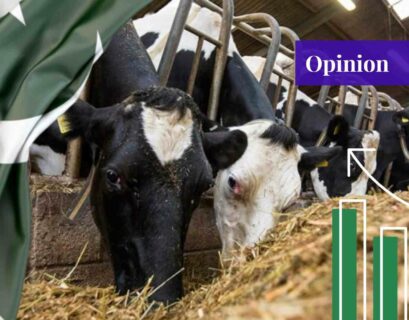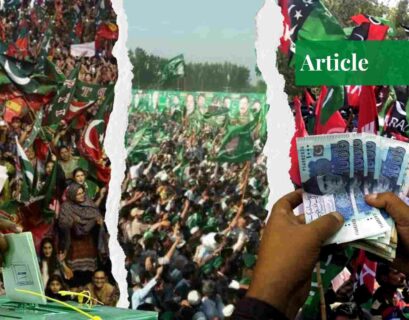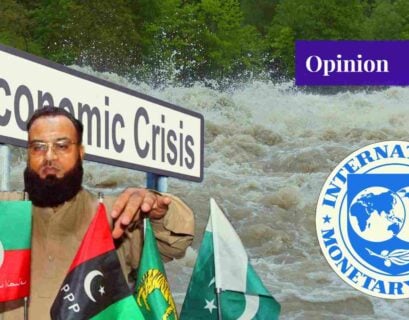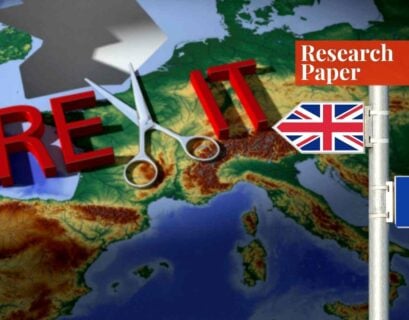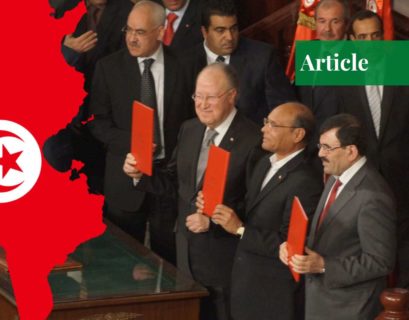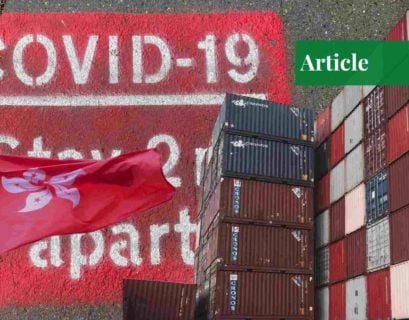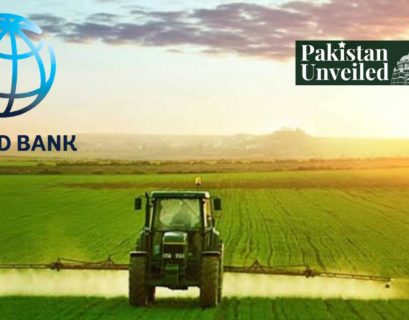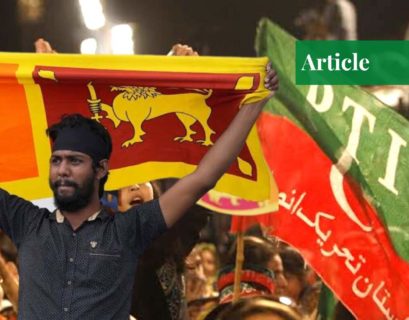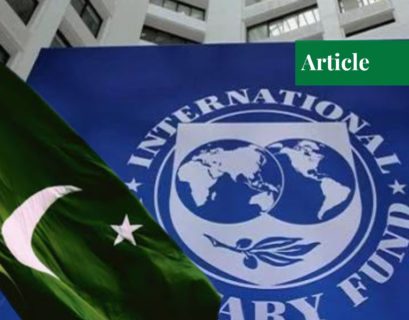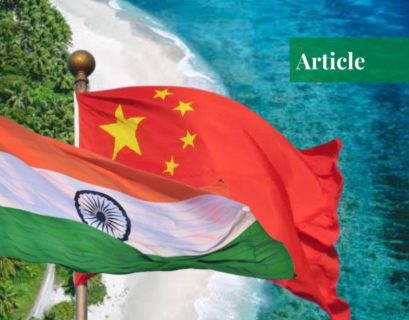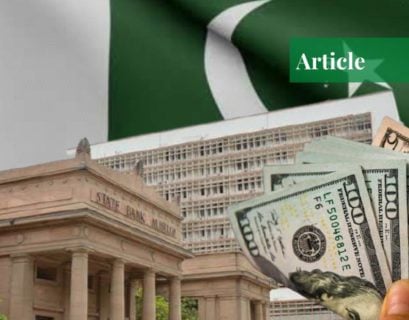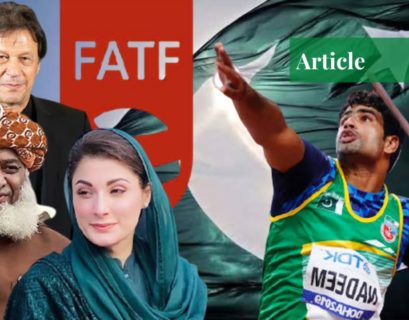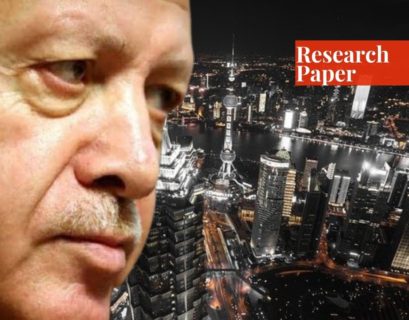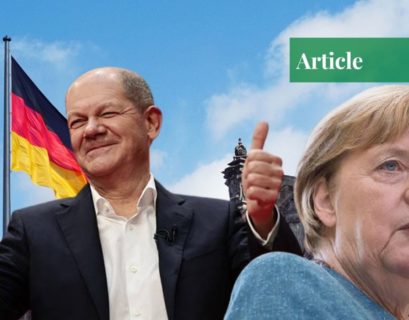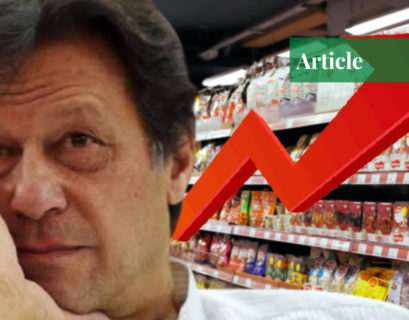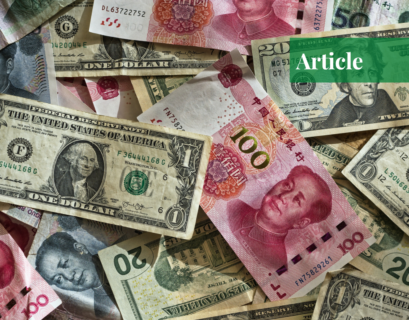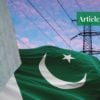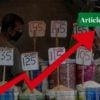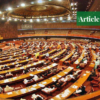The Woes of Pakistan’s Livestock Sector
Seeing that the livestock sector contributed about 14% to the national GDP in 2021-12, Tayyab Aleem is certain of its importance to Pakistan’s economy.
He examines the key issues being faced by Pakistan’s livestock sector.
The Economic Cost of Political Instability
Afflicted by political instability and uncertainty, Pakistan has faced a difficult trail in economic growth.
Laiba Umer Malik points out the economic costs that Pakistan has paid due to political uncertainty—elections, protests, and terrorism—in its history.
Pakistan’s Current Economic Situation: From the Devastating Floods to the IMF
After being struck by devastating floods, Pakistan’s already struggling economy is expected to further slow down in the next year. Aamina Ikram analyzes Pakistan’s current economic situation, highlighting the Asian Development Bank’s report on the state’s shrinking economy. She argues that in a state affected by political turmoil, economic instability, and environmental catastrophe, the IMF has played a significant role in crisis management.
The Impact of Brexit on the UK Economy
This research aims to explore the impact of Brexit, the most historic event to occur on the European continent since the fall of the Berlin wall.
The findings prove that while Brexit has given substance to factors (like taking back control of immigration and regaining sovereignty and national identity), it was not a rational economic decision.
The brits realized their mistake in the face of the severe economic hardships that the UK had to face post-Brexit.
Tunisia’s New Constitution: A Stronger President but a Weaker Country
In times of economic uncertainty, unemployment, and poverty, President Kais Saied seemed like the only hope for the citizens of Tunisia. However, Saied’s new constitution has only made matters worse. Haniya Ali assesses the changes in the constitution, noting that it has increased the presidential powers, creating a system where the president has little to no accountability. On the other hand, Tunisia’s economy is still suffering, and with it, so are the people.
The Inching Hong Kong Economy Post-Pandemic
Hong Kong, a special administrative region of China, has limited natural resources and thus has invariably depended upon imports to meet its demands within the region. Its vast trade domain with countries such as Mainland China, Taiwan, and the United States is unquestionable.
Seeing that Hong Kong has witnessed a comparatively slower post-pandemic economic recovery, Amna Asif notes that the US-Sino trade war and the pandemic have substantially arrested the growth of Hong Kong’s economy.
The World Bank in Pakistan: Transforming the Agriculture Sector
The Punjab Resilient and Inclusive Agriculture Transformation (PRIAT) project, with the help of $200 million in financial aid from the World Bank, intends to reform the agricultural sector of the Punjab province of Pakistan. The project will boost the state’s economic growth and encourage private sector investments and participation in agro-food projects.
Is Pakistan Becoming Another Sri Lanka?
Hasnain Haikal Memon compares the crisis in Sri Lanka with that of Pakistan. For him, the answer to whether or not Pakistan will become another Sri Lanka is not a simple “yes” or “no”. He argues that the two South Asian states are facing similar problems – inflation, currency devaluation, external debt, political instability – and if these issues persist, Pakistan might transform into a crisis state. However, even then, there’s a possibility that, unlike Sri Lanka, Pakistan might not descend into chaos.
IMF in Pakistan: Culprit or Scapegoat?
Though Pakistan has a history of relying on IMF loans, Rida Yamin notes that the organization is not to blame for the state’s economic condition. She asserts that poor governance is a key factor in Pakistan’s economic decline and its tendency to take loans from the IMF. The political parties in Pakistan either fail to implement efficient policies or make high-cost-low-yield flawed policies that further exacerbate the economic crisis.
The Strategic Importance of the Indian Ocean to China and India
The changing dynamics of global politics has pushed the Indian Ocean region into the limelight, and so the author, Allah Nawaz, examines the strategic policies and alliances of China and India. Although both China and India have a huge disparity in conventional and non-conventional capabilities, the US and Israel’s role in making India a regional power has intensified Indo-China relations.
Pakistan’s Economic Problems & the Need for Regional Connectivity
Economic security is necessary for every state but Pakistan’s economic problems have made it difficult for the South Asian state to acquire it. The author, Badshah Gul, notes that to improve its economic condition and to efficiently utilize its national resources, Pakistan needs to strengthen its relations with its neighboring countries—China, India, Afghanistan, and Iran—and engage with regional organizations like SAARC and the Economic Cooperation Organization (ECO).
Pakistan in 2021: A Tumultuous Year
2021 was truly an unpredictable year for Pakistan. The country saw turbulence in the political realm with protests by the Pakistan Democratic Movement (PDM), and dharnas by various other entities. The country’s economic woes only intensified as it failed to exit the FATF grey list. On the bright side, Pakistan’s athletes were given the due spotlight at several games this year, particularly at the Tokyo Olympics. Take a look at some of the major developments that took place in Pakistan in 2021.
Implementing the Chinese Economic Model in Turkey
President Erdogan is seeking to incorporate the Chinese economic model in Turkey. As such, Turkey will abandon high-interest rates and turn to production and exports. Opposing parties have cited this proposal to be unquestionably authoritarian. The author, Necati Demircan, explores Turkey’s abandonment of the neoliberal economic model and the new slogan of production in the country’s orientation towards Asia.
The Ill-Fated Relationship Between Pakistan and the International Monetary Fund (IMF)
With citizens being choked by the worsening inflation, the PTI government under Imran Khan is doing everything it can to avert the economic fallout that awaits if the IMF refuses the $1 billion loan. Many economists believe the IMF economic deal to be the cause of Pakistan’s rising inflation, but at this juncture, this dreaded deal also seems to be the only recourse for the country.
China’s Currency Devaluation Explained: Yuan vs Dollar
In 2019, the former US president, Donald Trump, declared China a currency manipulator. Although his predecessor, Barack Obama, had refrained from labeling China as such, he had shown frustration with its currency devaluation. For China, the low currency has been a cause for greater foreign investment. Since the state has a cheap production cost and labor, the international community now relies heavily on China’s exports. The author, Muhammad Hamza Tanvir, notes that China stockpiles American dollars and then uses them to purchase US treasuries which, in certain cases, can prove disastrous for the US. He explains that the US and China are ensnared in the Thucydides’ Trap and any development in their relations will affect the entire world.
Is the Global Economy Still Collapsing Due to the Pandemic?
The ongoing coronavirus pandemic has left no part of the world unharmed. Aside from its devastating impact on human life, COVID-19 has severely damaged the global economy. The author notes that the collapsing global economy has increased unemployment, food insecurity, and poverty, and threatened international trade and tourism. Due to the pandemic, the oil demand has reduced by 30% and the oil prices have reached an all-time low, causing the oil-producing states to suffer a 50-85% loss in oil revenues. According to the Asian Development Bank (ADB), this collapse is likely to cost the world economy $5.8 to $8.8 trillion. The author explains that for the recovery of the global economy, international organizations and varying countries (i.e. the US, China, Japan, and Pakistan) have introduced several initiatives and stimulus packages. However, for these measures to be successful, international cooperation is necessary.
